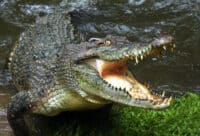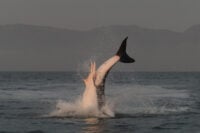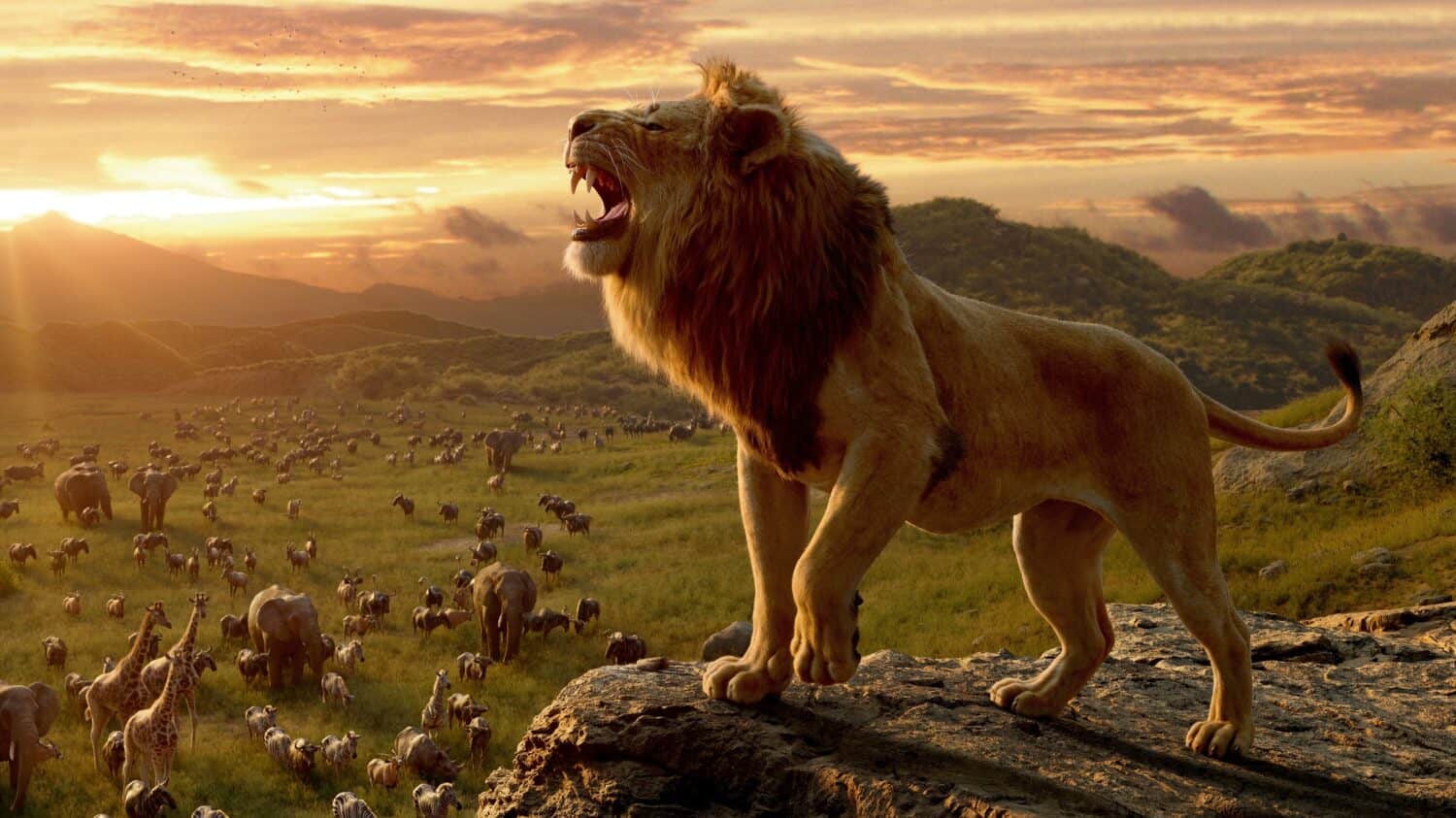

The above viral video posted on YouTube two years ago shows a pack of cows running down the street, fleeing a scene. At first, it appears the cows are running from a medium-sized dog as it chases them down while barking incessantly. However, upon further viewing, you will notice a lion emerging in the distance, almost as if to ensure the cows are on their way.
When the dog notices the lion on its tail, it immediately sprints toward the group of cows, joining them in their fleeing of the scene. This instance could have ended poorly for the dog had it not noticed the massive lion stalking him. However, thankfully, the security footage — which took place around 2:40 a.m. — does not seem to feature any sort of lion attack on the dog or the cows. However, the clip does cut out short of the lion potentially reaching the herd. We can only hope there are many survivors!
Keep reading to learn more about lions and their behaviors toward both cows.
Where do lions live?
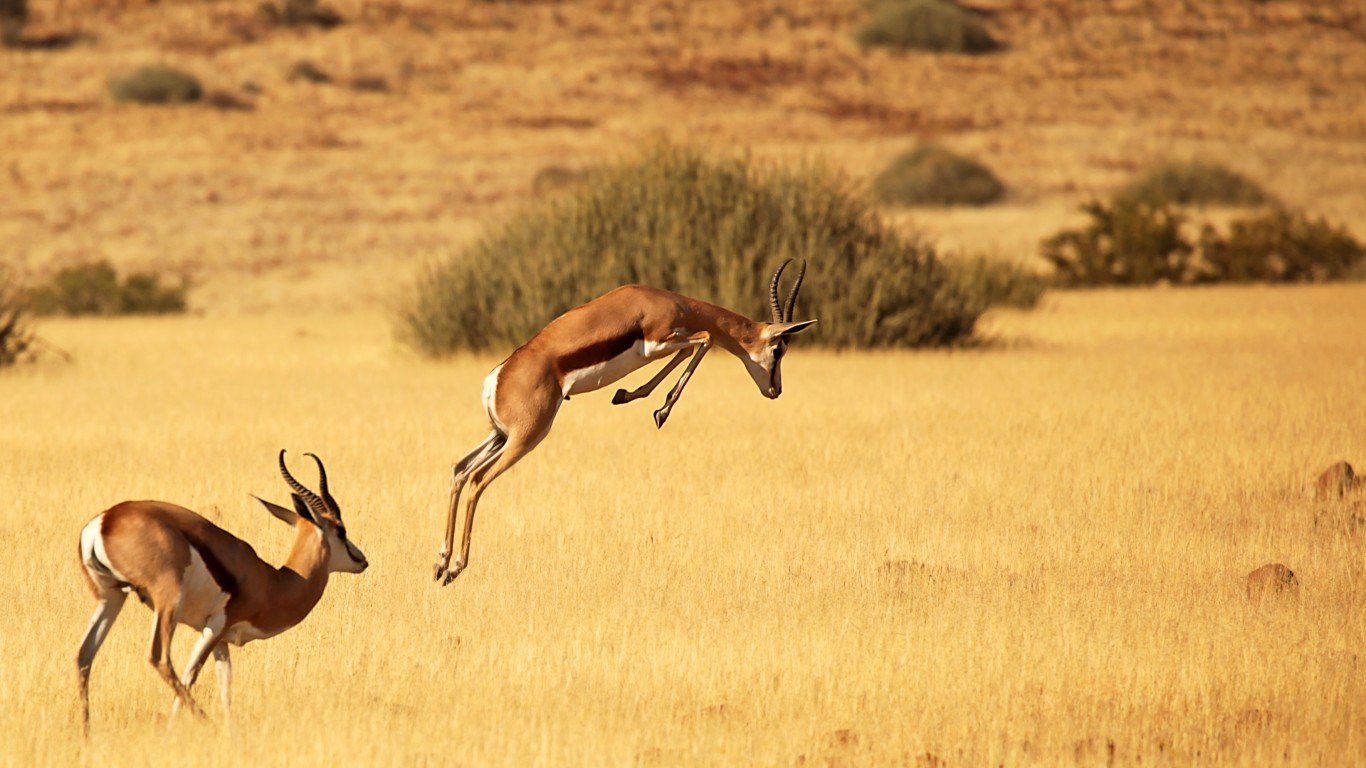
Lions mostly live in Africa, with a small population residing in Asia. This large cat inhabits various landscapes, including open plains, grasslands, thorn forests, thick brush, and scrubby areas. While a subspecies of the Indian lion still resides in the Gir Forest of Northwest India, a majority of the lion population lives in Africa, which is also home to the world’s most lawless country.
Two of the most concerning threats against lions are habitat loss and hunting. In fact, studies show that the population of lions is continuously decreasing with only around 24,000 lions still living today. For reference, around 100 years ago, there were close to 200,000 lions in the world. This is a result of human land use as well as climate change destroying lion habitats.
Are lions aggressive?
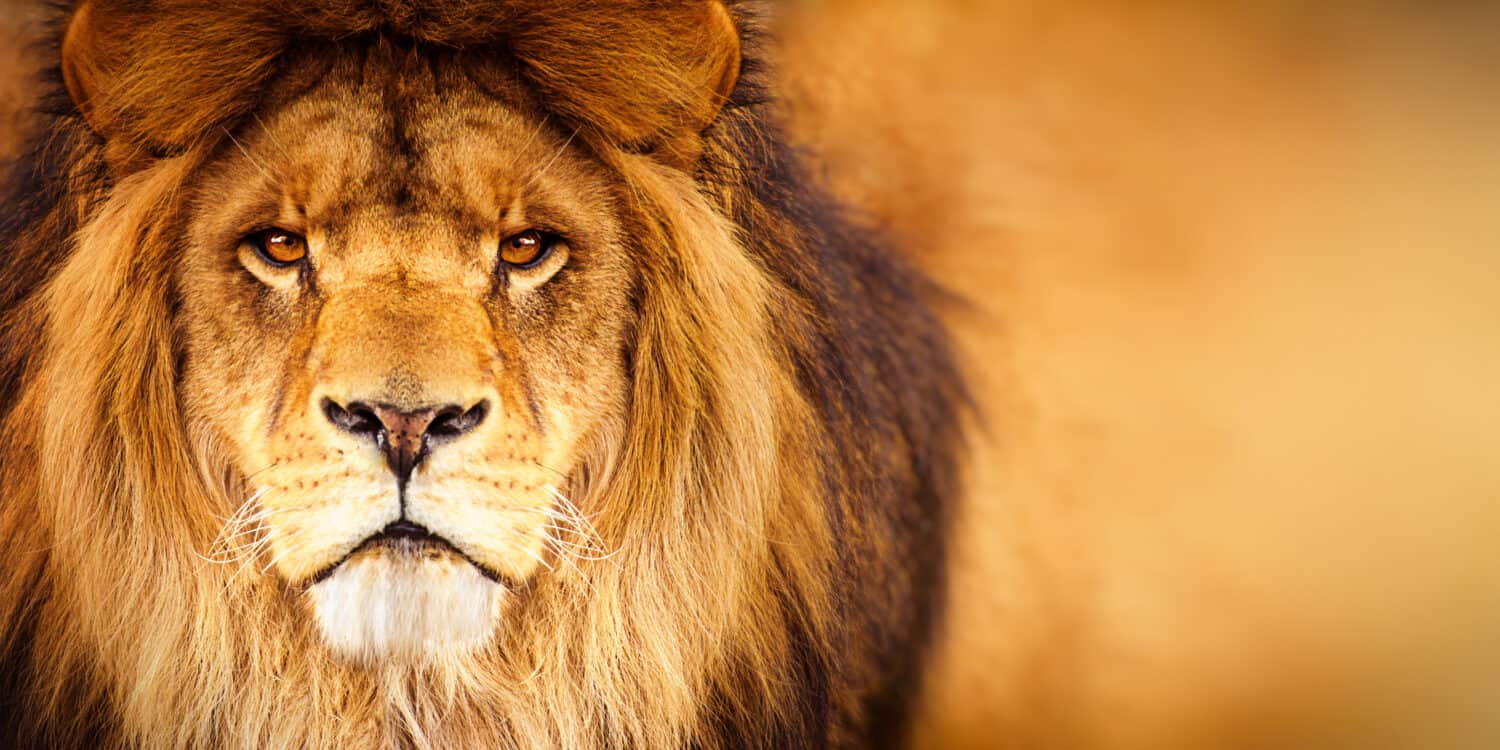
Yes, lions are incredibly aggressive predators and will attack and even eat humans if given the chance. However, they typically do not roam areas where humans usually frequent, such as towns and cities.
That being said, this top predator is known as the “King of the Jungle” because they will fight and kill most other animals and even steal other predators’ food. Their hunting skills are also top-notch and nearly faultless. Sometimes, lions will hunt strictly based on instinct, not even returning to eat their prey. In fact, many lion attacks are simply results of territorial behavior and fear promotion to ensure they remain on top of the chain as apex predators. These massive creatures do most of their hunting at night.
What do lions eat?
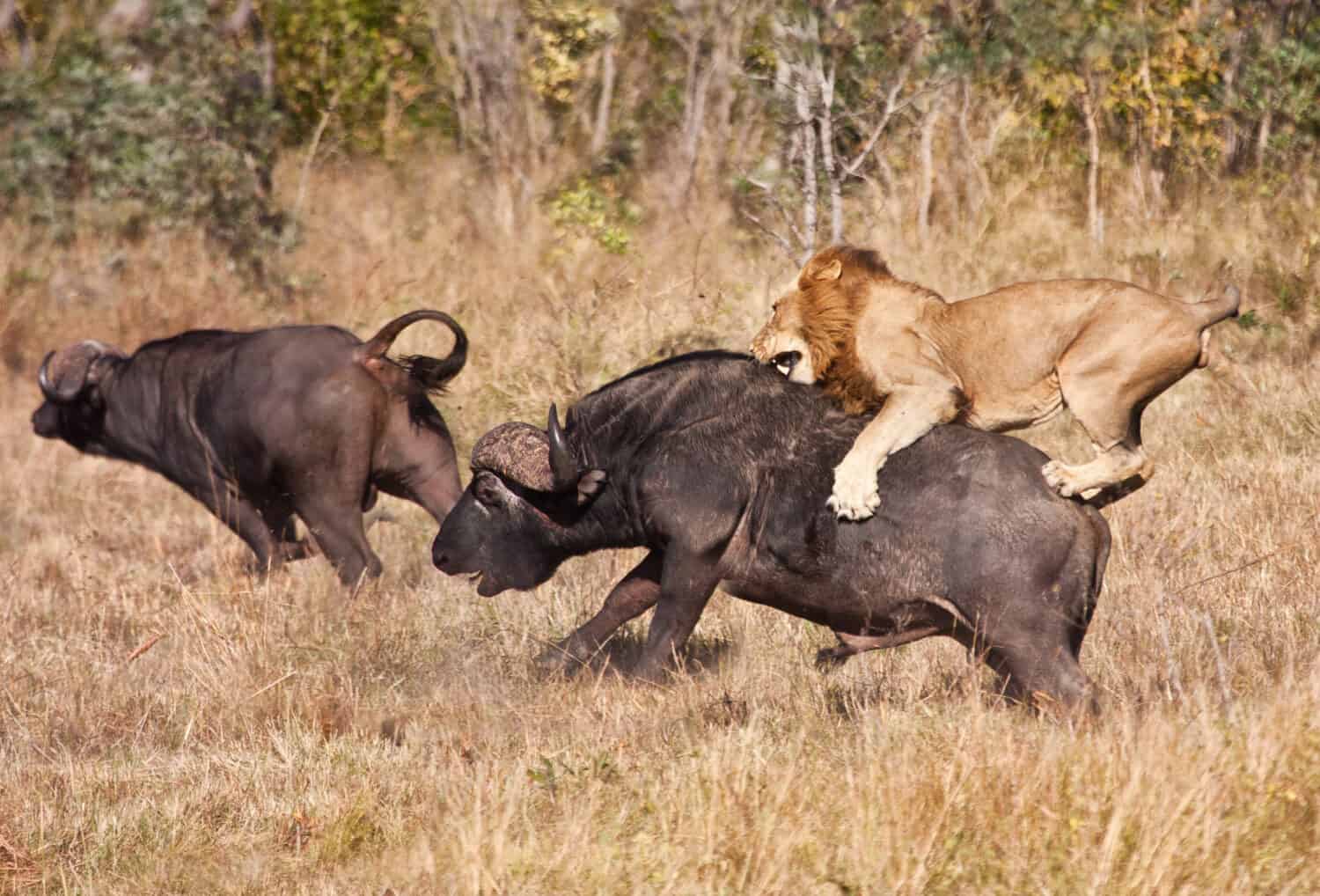
Lions are carnivores that eat a variety of animals, two of the most common being zebras and wildebeest. However, they will also sometimes settle for rodents, reptiles, and other similar prey. In fact, many experts believe lions will essentially eat any animal they can hunt and kill.
Lions also often steal meals from other predators, such as hyenas and leopards. They do so by attacking the other predators or sneaking in to consume their prey. In terms of killing their own prey, lions typically stalk then ambush their victims by pouncing on them, knocking them over and ultimately overpowering them, and biting into their throats.
Lions sometimes hunt alone or in a pride. Typically, the lioness is the one who will initiate kills and hunt for her cubs, oftentimes alone.
Do lions hunt cows?
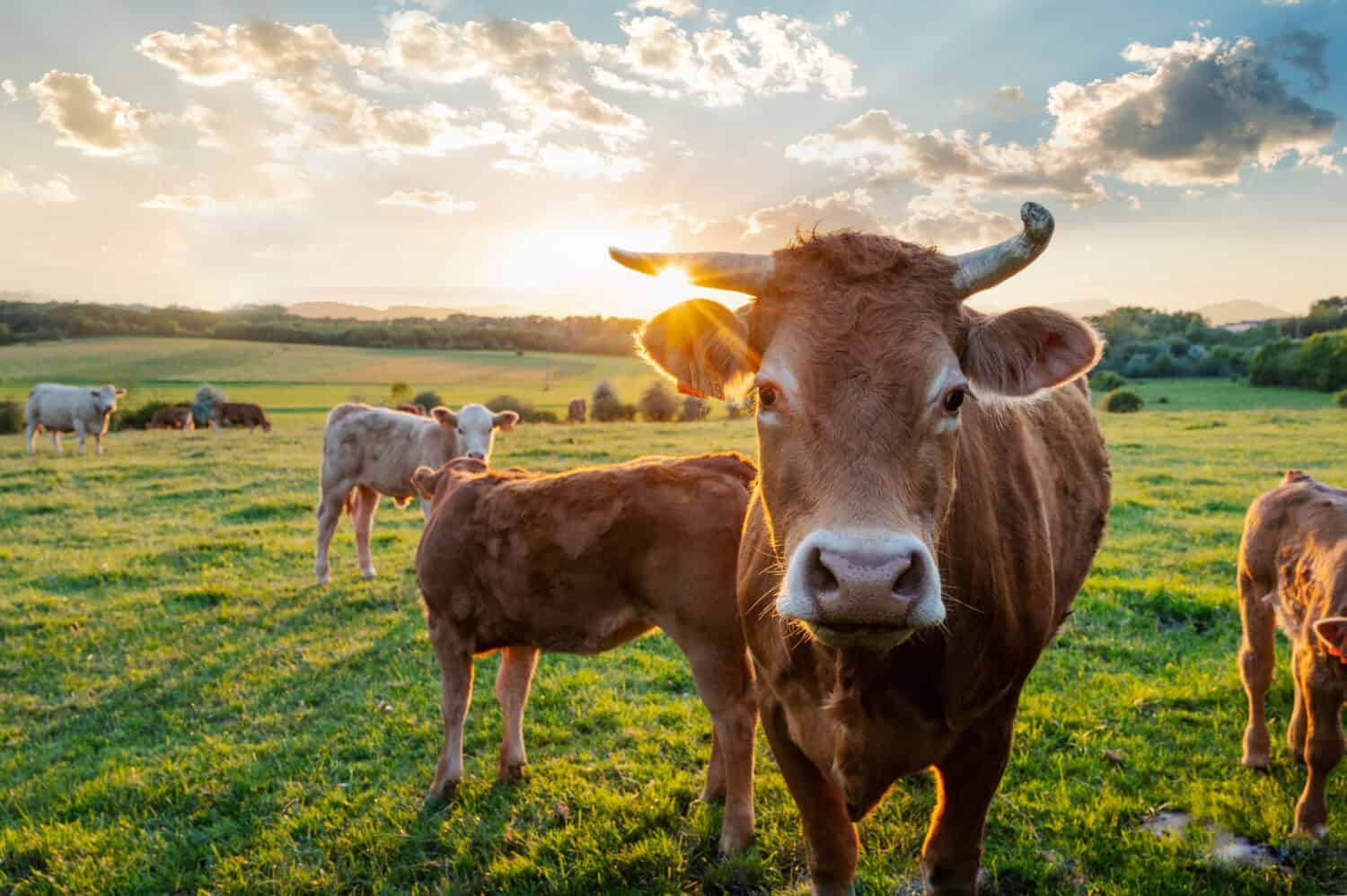
As mentioned above, lions will essentially hunt any prey they have access to. The video above does a good job of painting a common scene: lions will often hunt and kill cattle during the nighttime. However, it is quite rare for a lion to chase any animal down a street. Typically, this type of hunting occurs in wild habitats.
According to research, lions typically only target a specific type of cattle. In particular, they will hunt cattle in areas where they are most vulnerable and easy to catch. The research also found that 80% of cattle killings happen between dusk and dawn. Additionally, lions seemed to target cattle with no horns while ultimately avoiding long-horned cattle. Furthermore, there were more attacks against cattle with mottled or non-uniform color coats.
How large are lions?
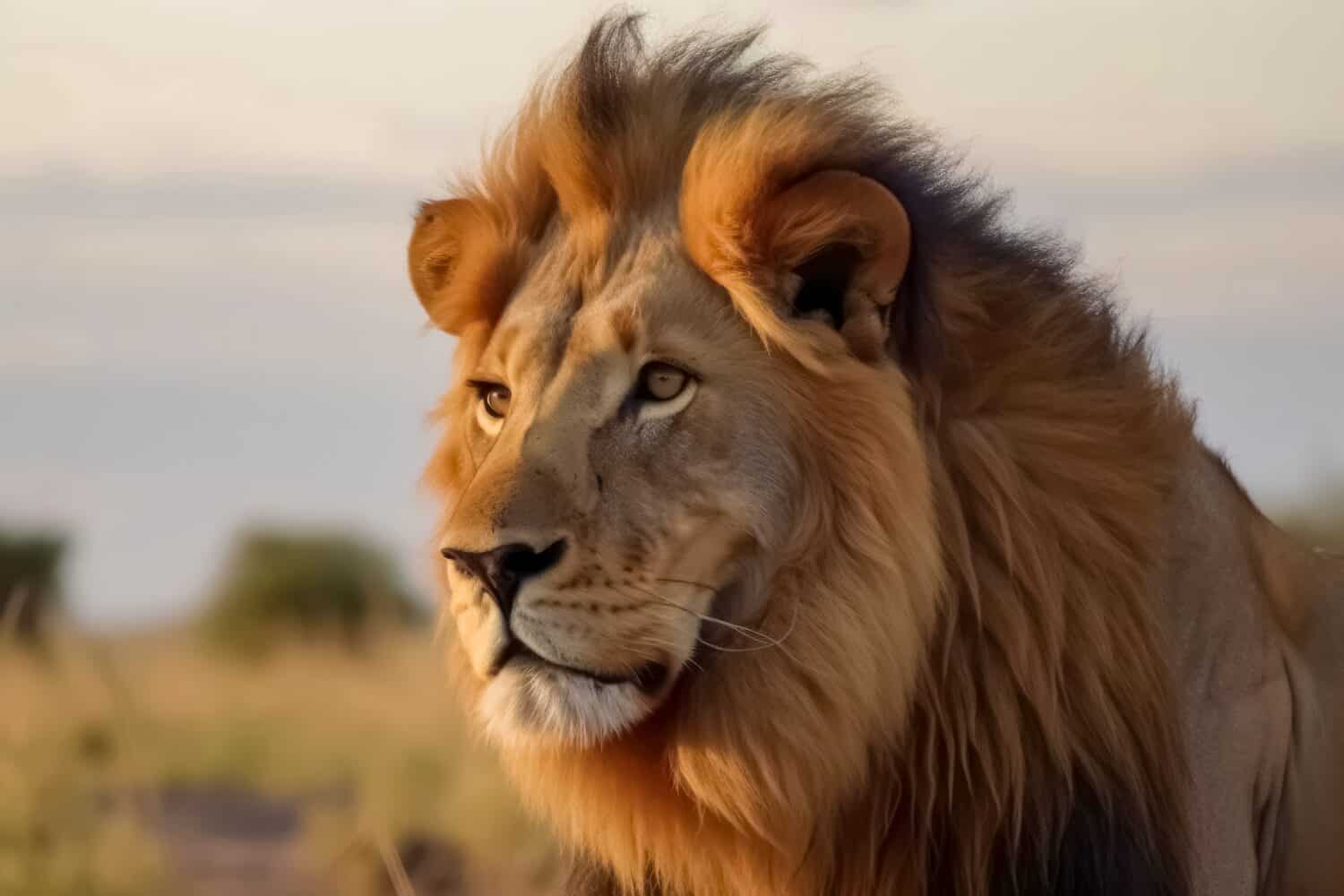
Lions usually stand at around 3 to 5 feet tall, measure around 10 feet long with a 2 to 3 foot tail, and weigh between 330 to 550 pounds. That being said, this wild cat is quite large and can easily do damage when attacking other animals.
Why do cows travel in herds?
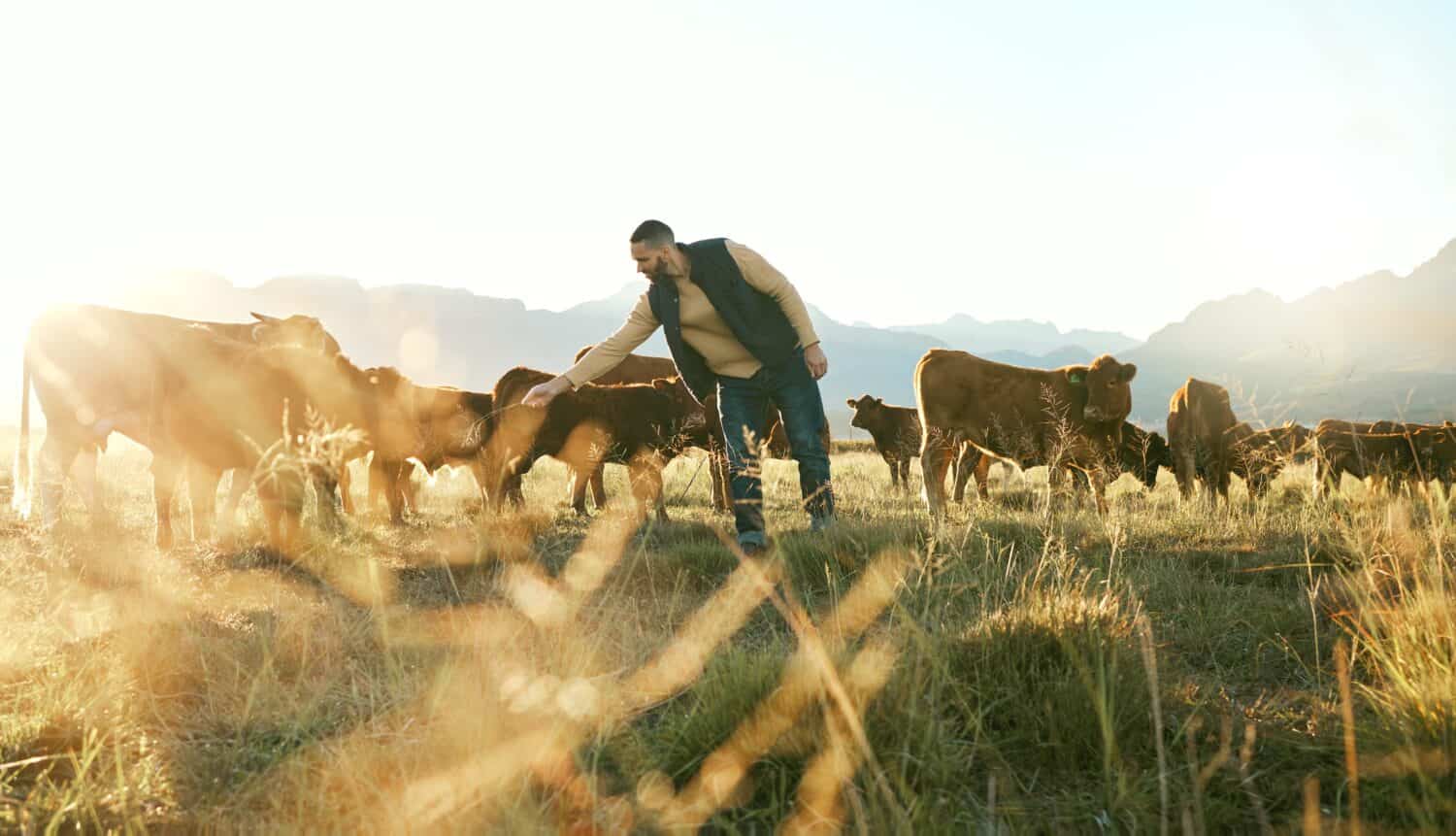
Cows are herd animals by nature, meaning they tend to travel in packs to protect each other from predator attacks. Herding becomes instinctual for such animals and serves as a form of defense.
For example, rewatching the video above, imagine only one cow was fleeing both a dog and a mighty lion on its own. If the lion attacked the lone cow, it would have nearly zero protection, especially since lions tend to sneak up on and ambush their prey.
Now, if the lion were to attack an entire herd of cattle, it’s safe to say the lion would struggle way more facing dozens of large cows as they kicked and stomped in their defense.
How do cows protect themselves?
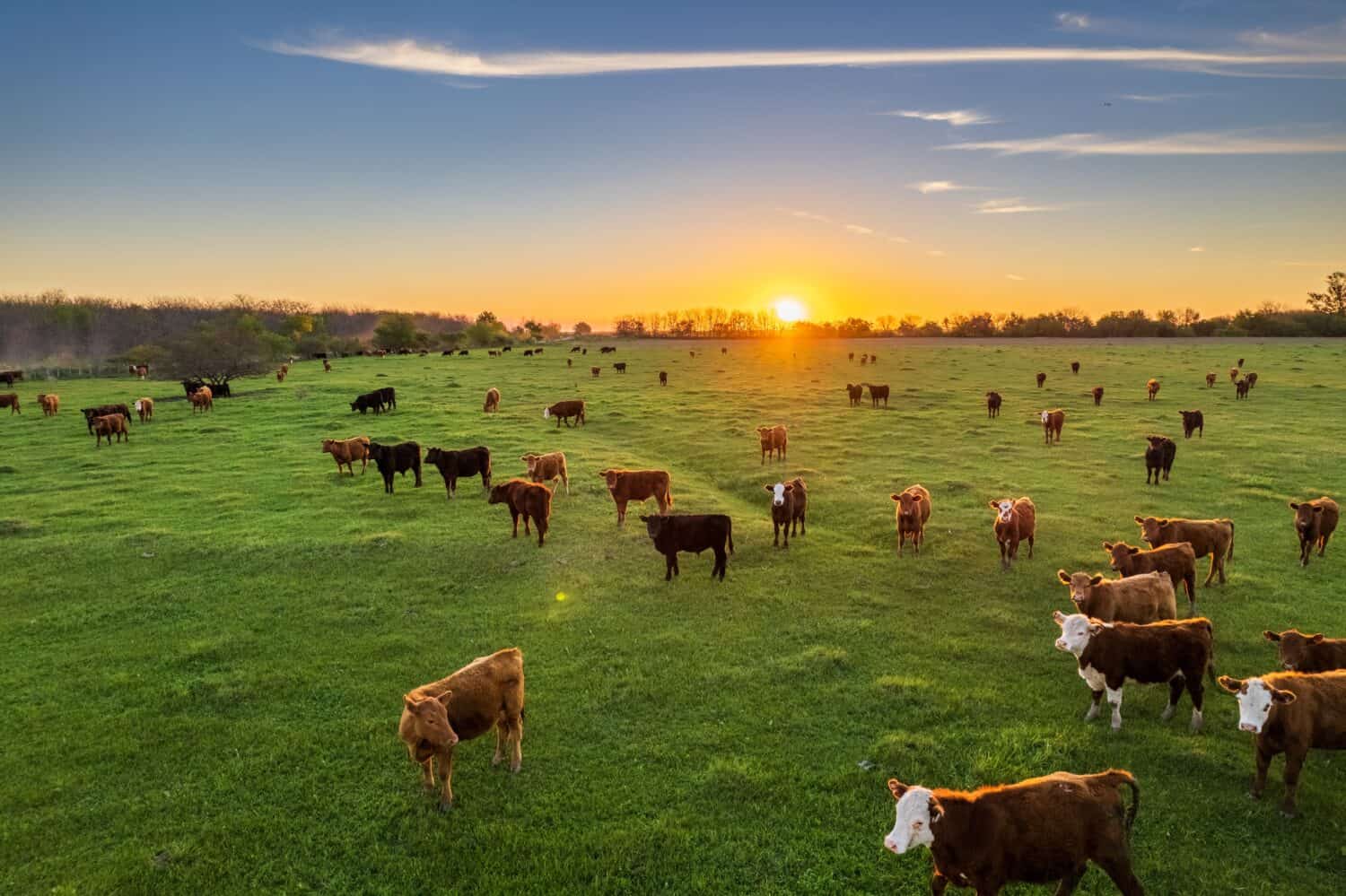
Typically, cows protect themselves by doing what I mentioned above: traveling in herds. In other words, there is power in numbers.
Furthermore, cattle will typically flee the area if they feel spooked or threatened, which helps them make good judgment calls before it’s too late. In terms of fighting, if forced to face a predator, a cow will often kick, stomp, or head-butt its attacker to provide itself with the best chance at survival.
Why do dogs chase livestock?
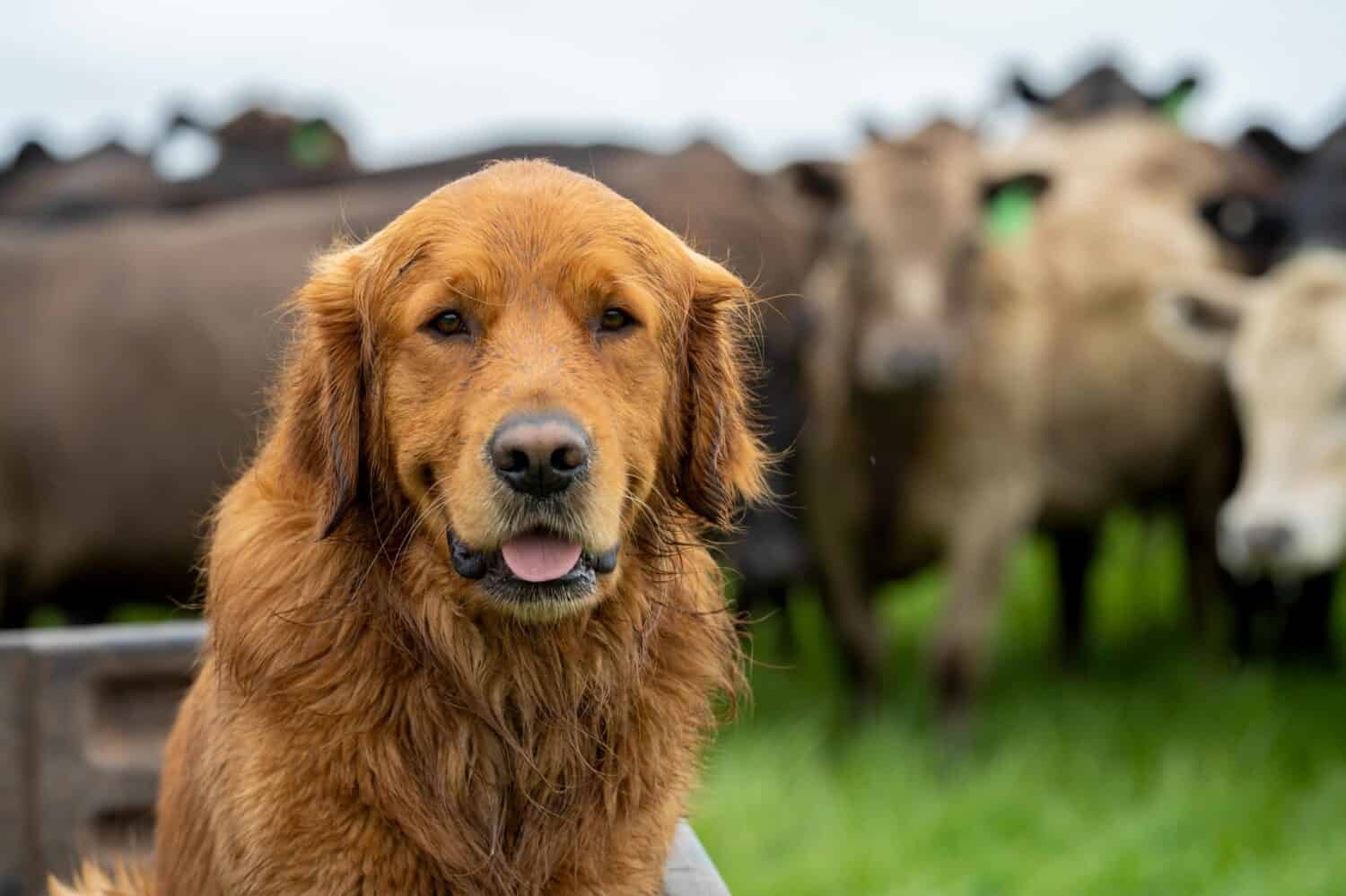
Many people wonder why dogs are often seen chasing after livestock. Since dogs aren’t hunting cattle for food purposes, it might seem silly that they would waste their time running after several large cattle that can ultimately do severe damage and even kill the dog if necessary. However, simply put, dogs enjoy chasing livestock.
Just as you’d notice a pet dog chasing a squirrel under a fence or fetching a ball with its owner, dogs will chase livestock as a sort of instinctual action. The feat of chasing cows can be rewarding and even feel addicting to some dogs. However, this is usually a harmless occurrence that doesn’t injure either animal — unless, of course, the cows feel threatened enough to attack the dog.
Are cows afraid of dogs?
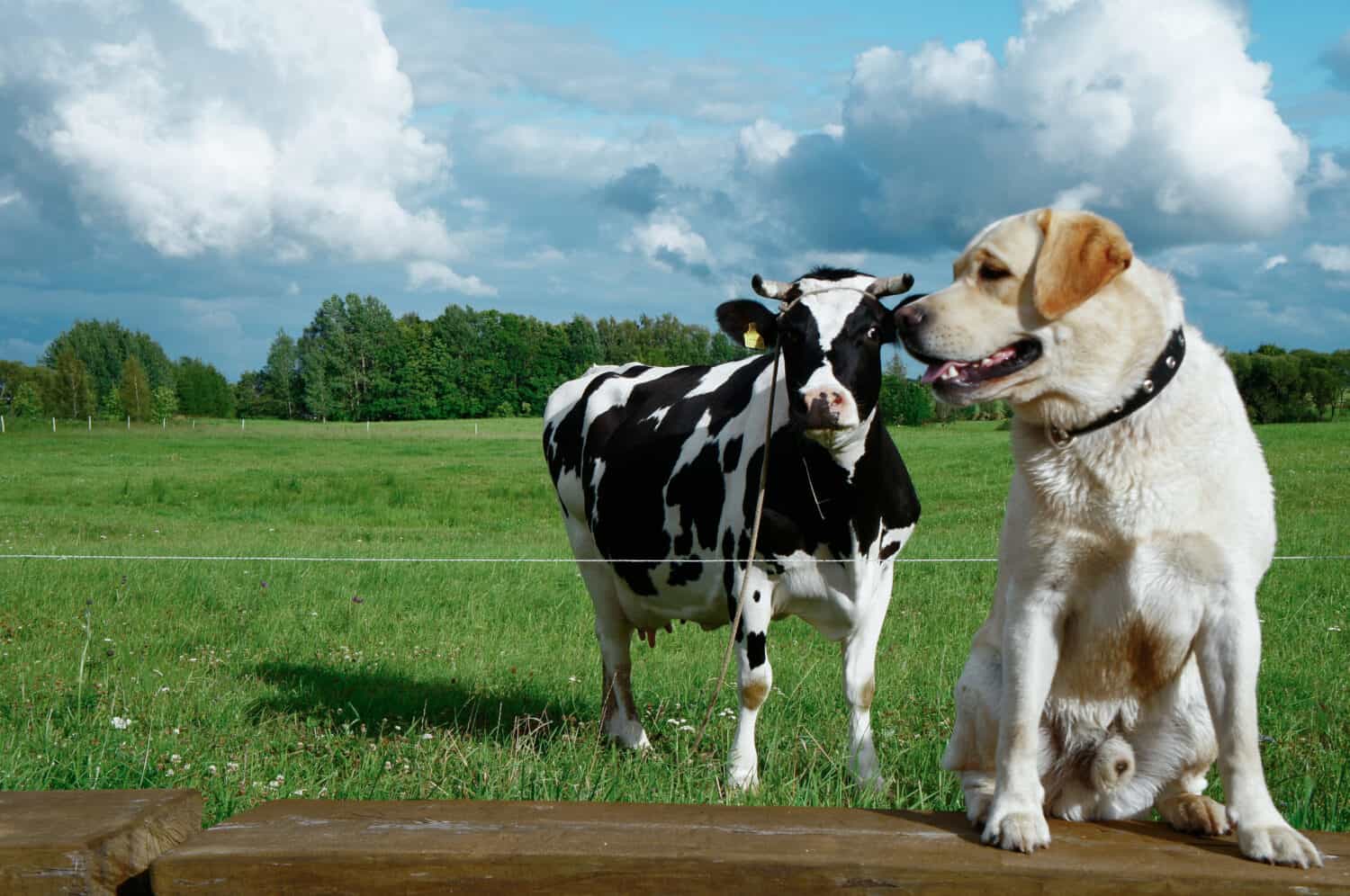
Cows are typically timid creatures that shy away from stressful interactions. That being said, if a dog, like the one in the video comes chasing after them while barking, the cows will likely get spooked and flee the area. Cattle are also afraid of humans and can startle easily if caught off guard.
While cows can be aggressive if they feel threatened, their first instinct is usually to run away. That being said, it’s never a good idea to allow your dog to chase after livestock. This can be stressful for the cattle and can (though rarely) lead to a serious or even deadly attack against your beloved pup.
Sponsored: Attention Savvy Investors: Speak to 3 Financial Experts – FREE
Ever wanted an extra set of eyes on an investment you’re considering? Now you can speak with up to 3 financial experts in your area for FREE. By simply
clicking here you can begin to match with financial professionals who can help guide you through the financial decisions you’re making. And the best part? The first conversation with them is free.
Click here to match with up to 3 financial pros who would be excited to help you make financial decisions.
Thank you for reading! Have some feedback for us?
Contact the 24/7 Wall St. editorial team.

